This post is also available in:  Deutsch (German)
Deutsch (German)
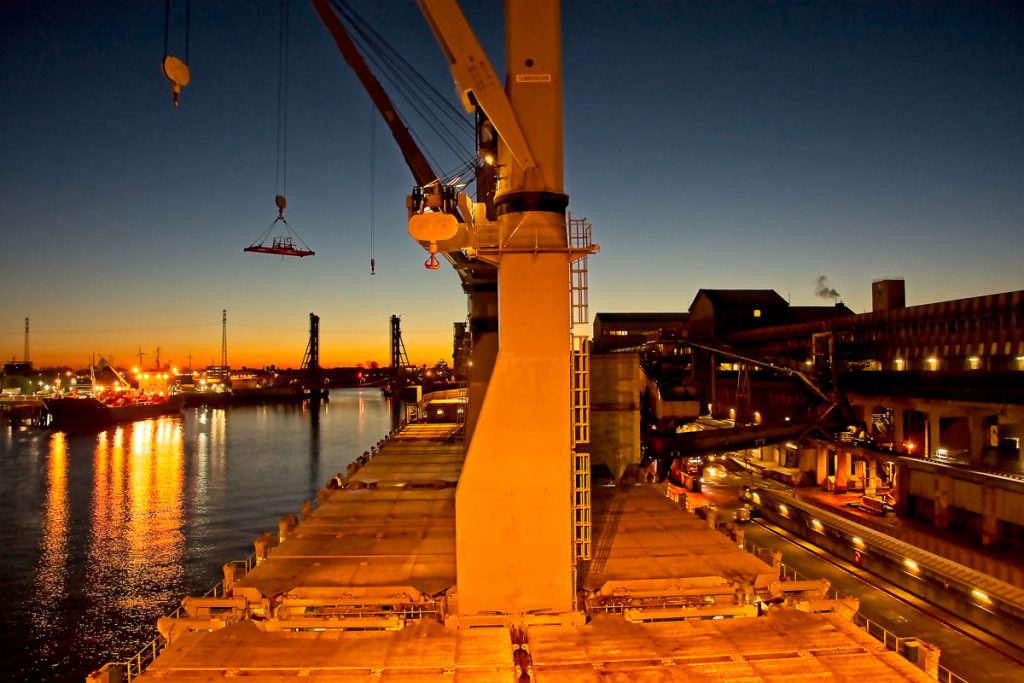
It’s just after seven. The hatches are closed. At breakfast, Pierre and I are told that the start is planned for 8:00.
After breakfast, Robert shows us the room where we can wash and dry our clothes and the fitness room where we can do sports if we want to. There is an indoor swimming pool, but it is empty. It’s a construction error: when the sea is rough, the water in the pool is distributed all over the room.
Then we go all the way up to the 7th floor, up to the bridge. There’s not much happening there, except for the Third Officer hoisting a German flag. The departure is approaching.
Shortly after eight o’clock, the tugs arrive. The engine is started. I grab my camera and go on deck. Actually, I wanted to be on the bridge while we were leaving, but I had noticed that because of the reflecting windows, I wouldn’t be able to take great pictures. So I go out on the deck.
It’s freezing. The night before it had snowed and on the windward side of the ship lies thick, very slippery ice. On the other side, there are dry spots. I confine myself to them while I am outside.
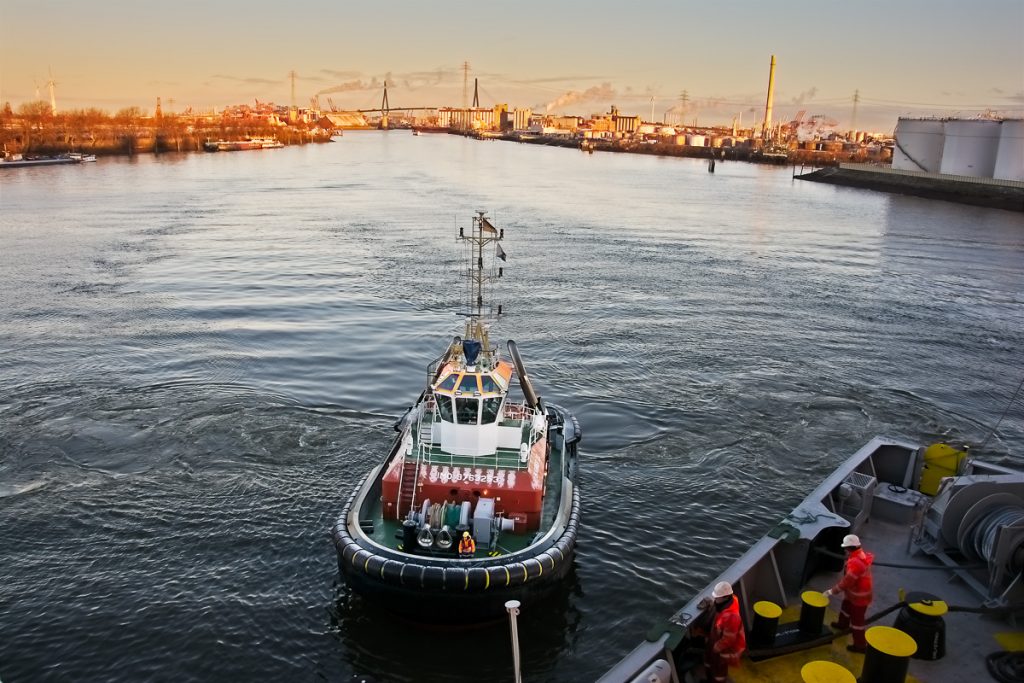
The tug ropes are attached to thick bollards on the Bright Sky. The lines, which fixed the ship to the quay, are hauled in with large winches.
Then we’ re off. First, the tugs pull us slowly away from the quay. Then, with enough distance to the wall, one tug pulls, and the other pushes the Bright Sky so far that it turns 180 degrees around. We start, in the direction of the Köhlbrand bridge.
The weather is beautiful, although it is freezing. The sun shines from the blue sky, and it gets so warm that the ice slowly melts away.
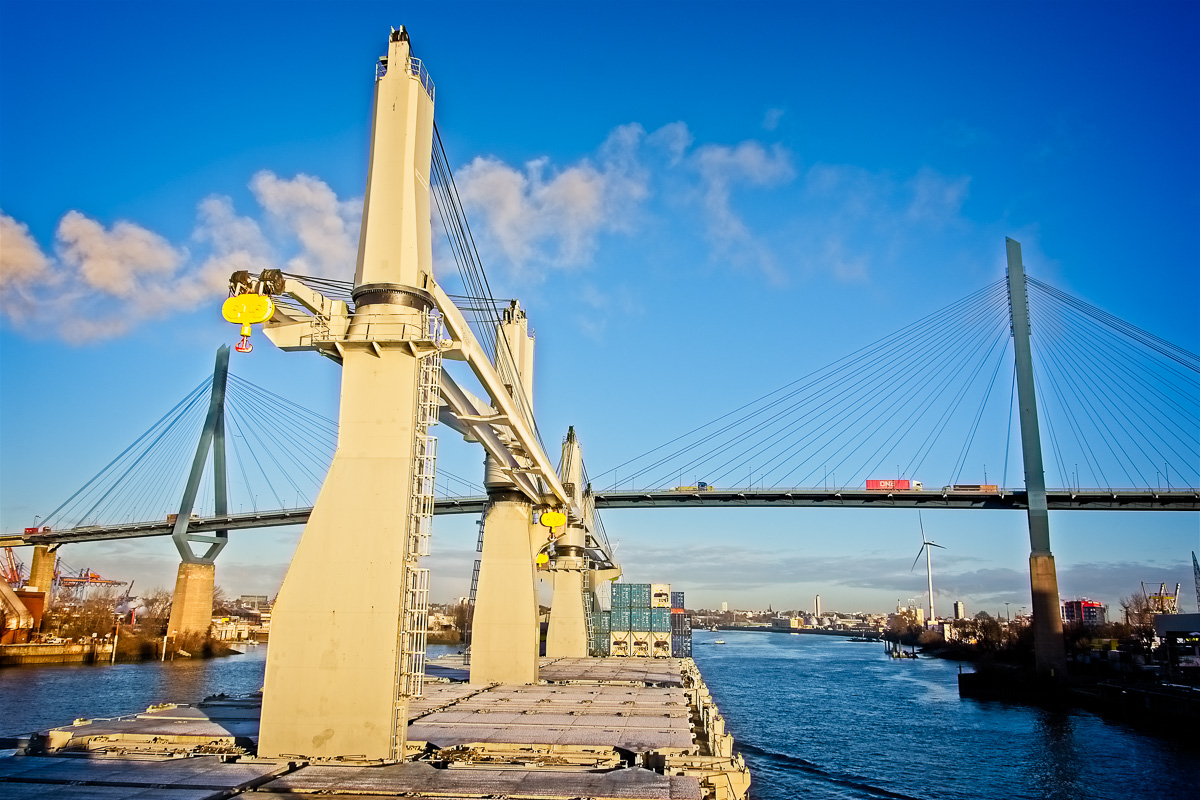
The tugs tow us under the Köhlbrand bridge to the Elbe. On the river itself, I have a lovely view to the east, to Hamburg City. The Elbphilharmonie sparkles in the morning light. Seagulls fly around.
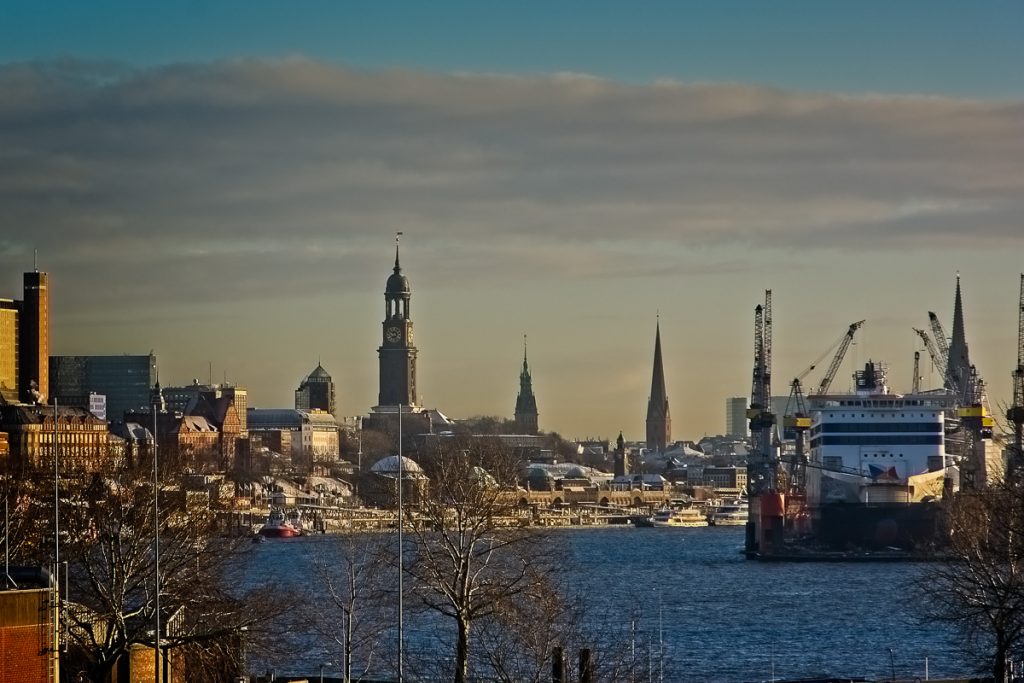
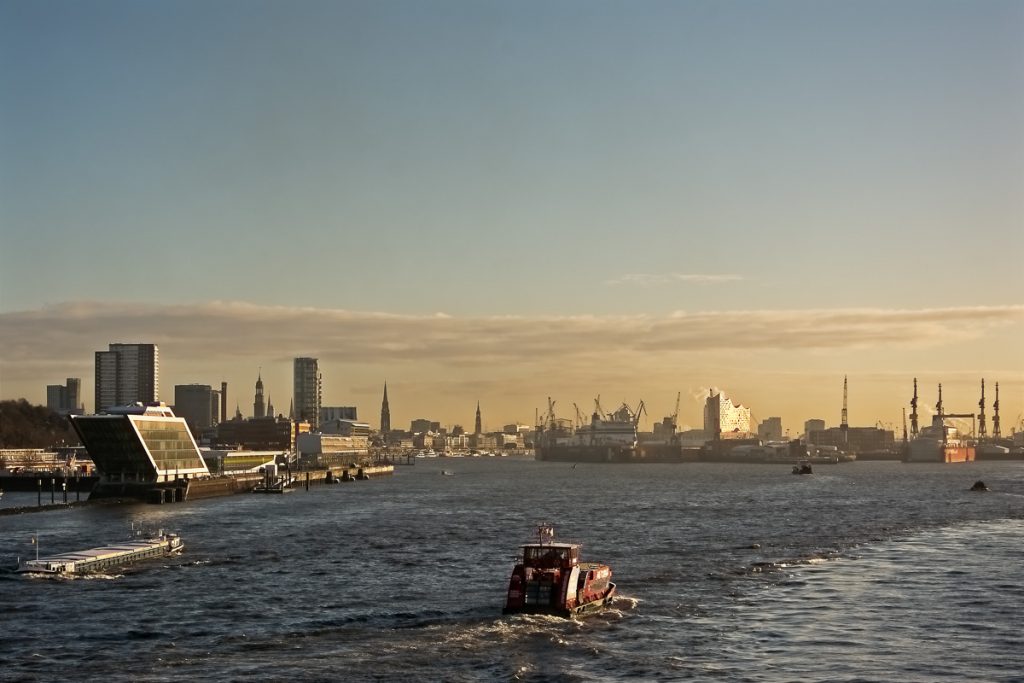
Soon we reach Övelgönne. With the pleasant weather, there are many strollers with dogs walking around.
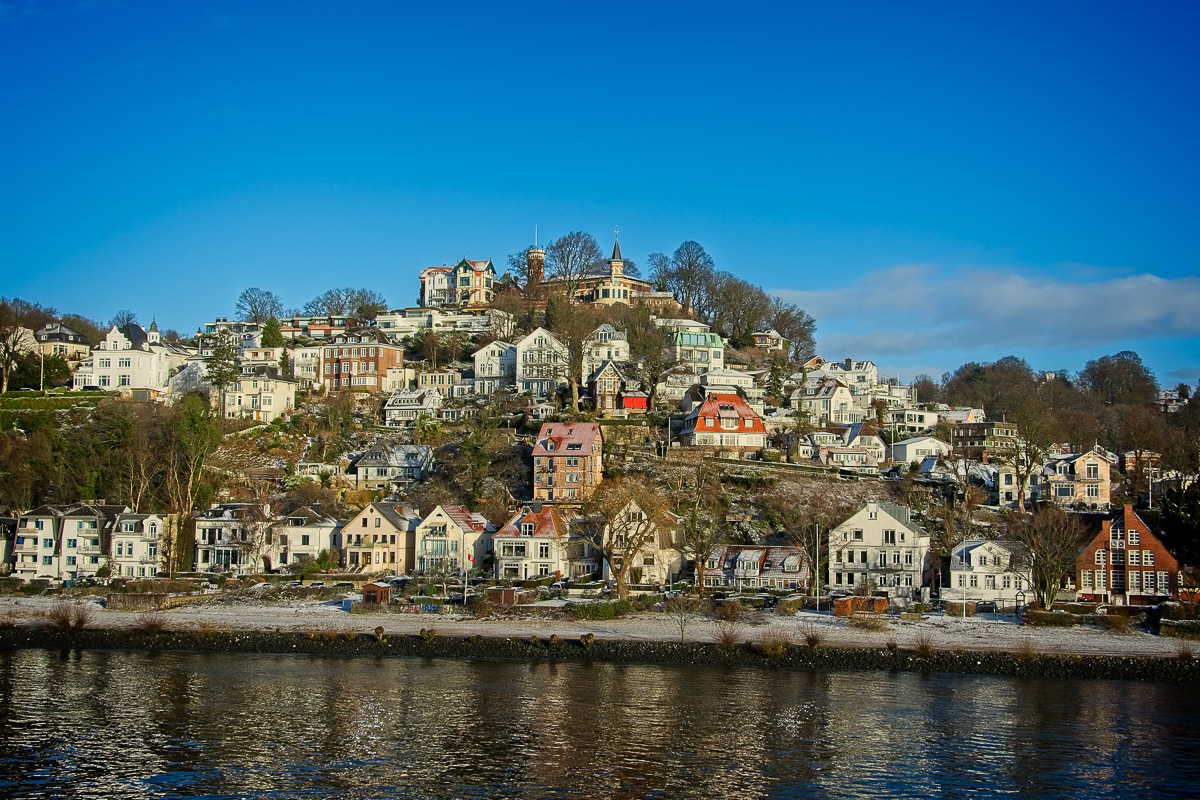
We pass the large Airbus complex. Now we finally leave Hamburg behind us. The pilot disembarks the ship. Another one comes on board. From Hamburg to the North Sea, we will be accompanied by three pilots one after another.
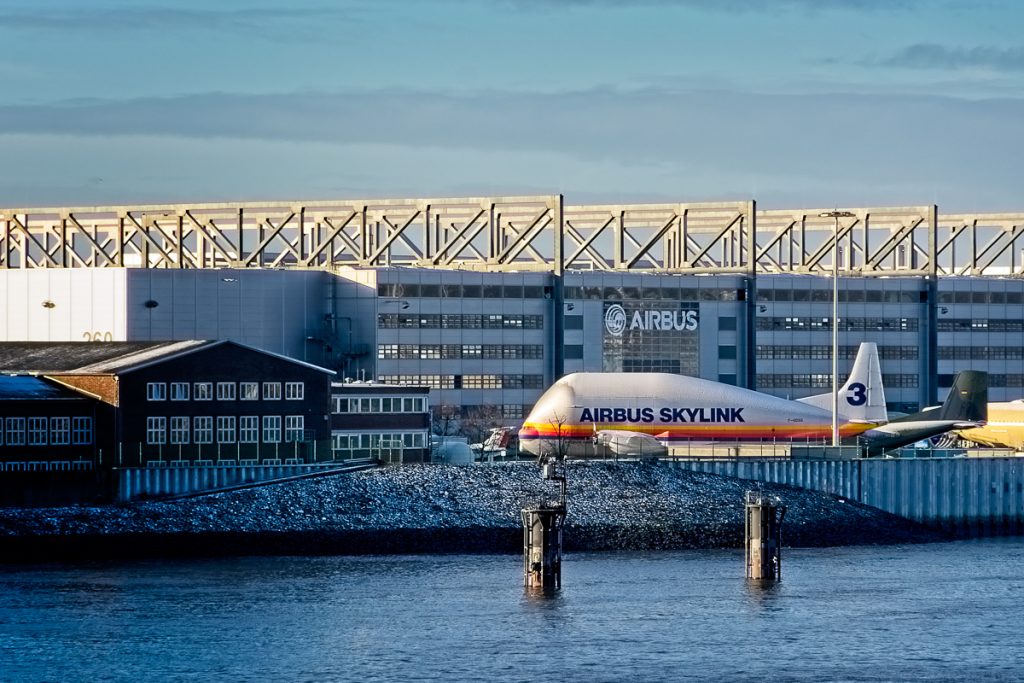
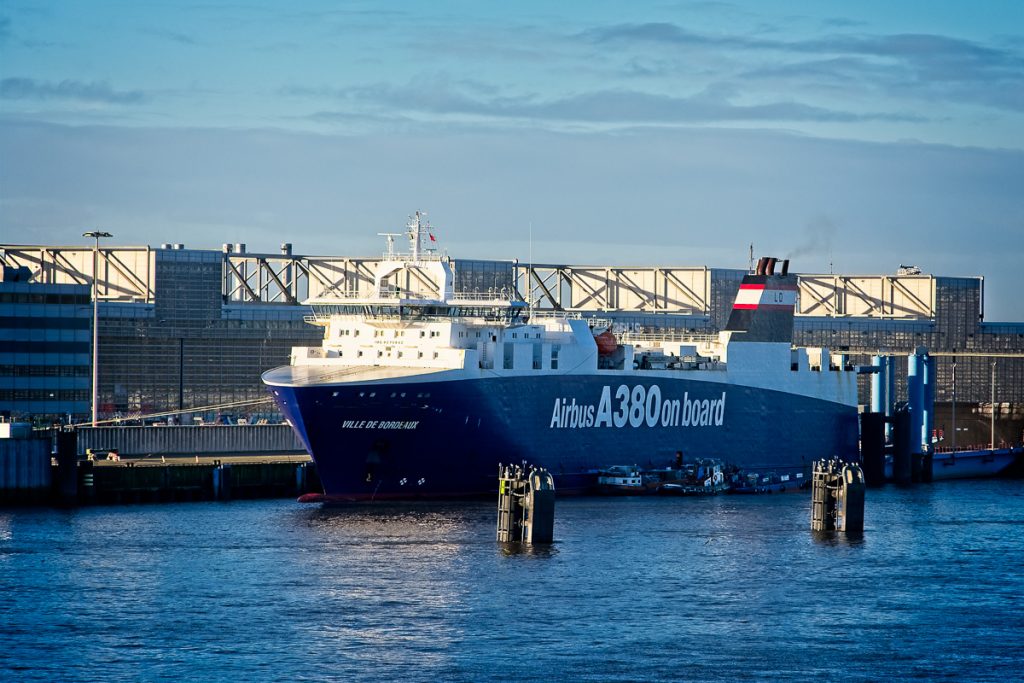
It’s ten o’clock. Because I am freezing, I go up to the bridge. There the view is excellent, but everyone seems a bit stressed. I think to myself: “It’s just the way it goes when leaving a port” and go quietly to the side of the room where I don’t stand in the way of anyone.
Shortly afterwards, the Third Officer approaches me. There is a problem. He asks me to leave the bridge but promises me that I can come back another time. I don’t want to disturb anyone and go back to my cabin, make myself some tea and read a little.
At lunch, only two of the officers come for their meals. Robert tells Pierre and me that we have to go back to Hamburg. There is a problem with the engine. So really, shortly afterwards the ship turns.
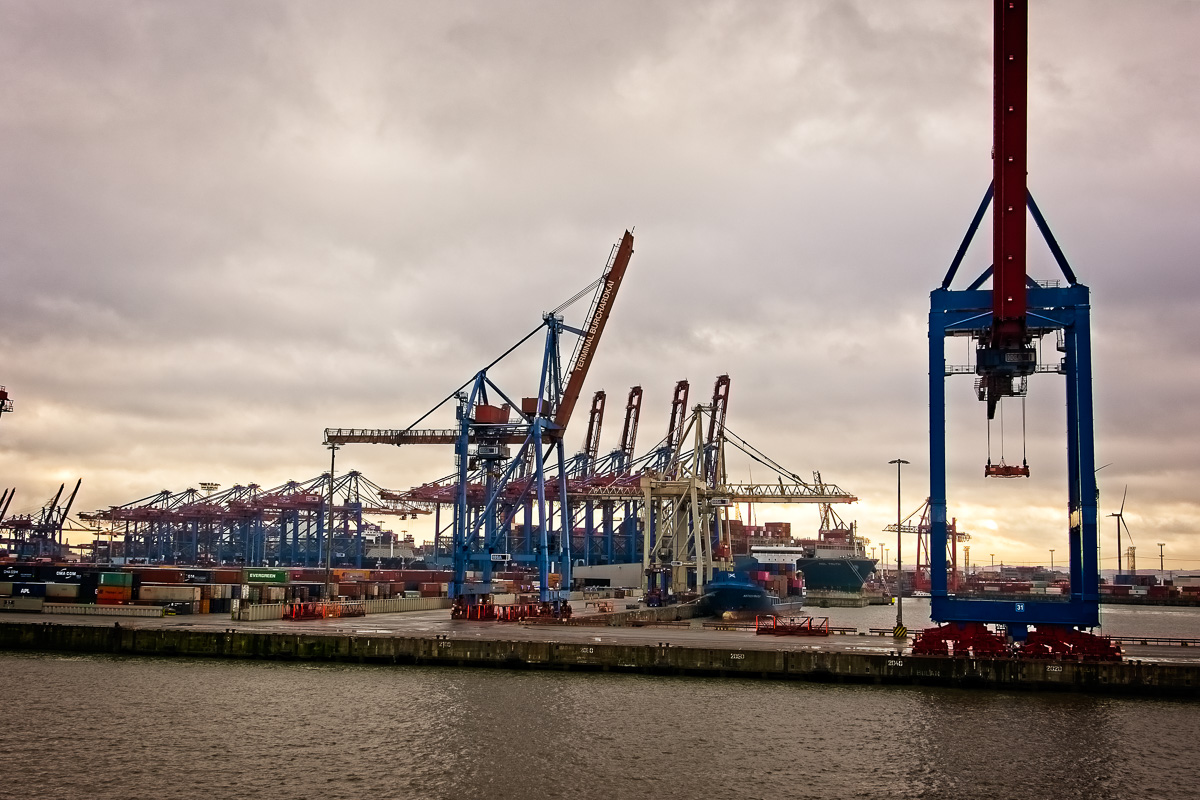
We travel up the Elbe and again pass Airbus. Already we see the first cranes in Hamburg harbour. Pierre and I are curious to see how things will continue. I don’t care about one day more or less. However, Pierre has only one day buffer before he travels from Durban to Madagascar.
At lunch, Pierre tells me about his travels. Like me, he loves to travel in deserts. Twice Pierre lost a car in the Sahara. He has also visited southern Africa a few times. We exchange our breakdown experiences on off-road roads.
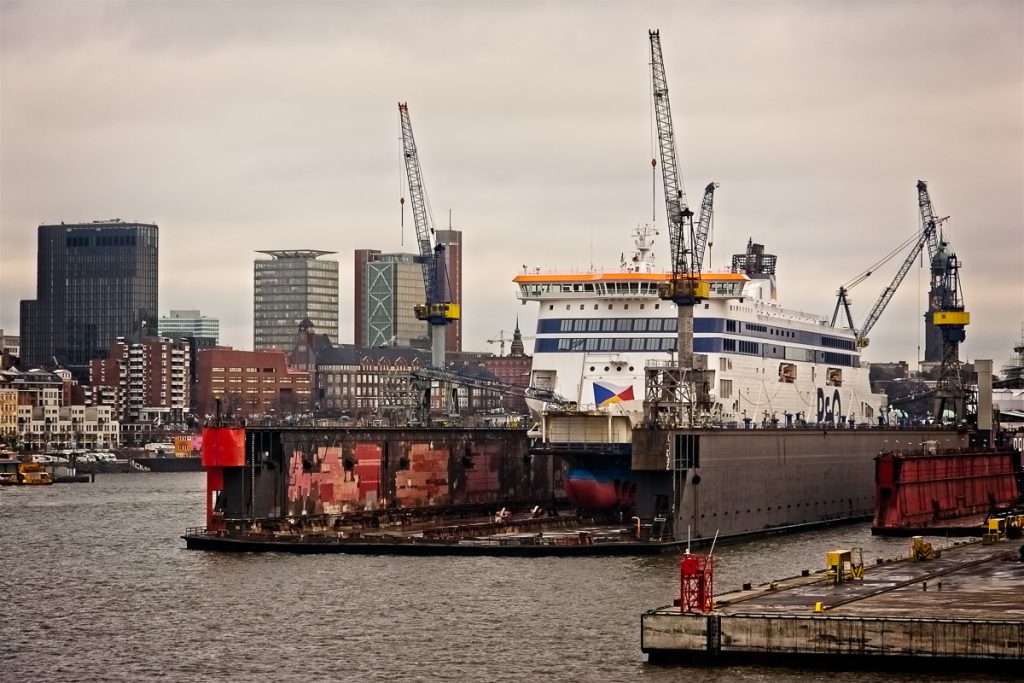
At half-past two, the Elbphilharmonie is within sight. We are back in Hamburg.
The weather is not beautiful anymore. Clouds are in the sky.
We’re going back to a berth. This dock has no infrastructure other than bollards. Cars with winches have to come to pull the heavy anchor rope up the quay wall. On the other side of the harbour basin, a lot is going on. A huge container ship is loaded there by four or five cranes at the same time.
The captain dines with us. Pierre and I ask if the problem has been found. He says, yes, but doesn’t elaborate on our questions for more details. Tomorrow morning we will start.
Later, the German-speaking engineer joins us at the table. He says that somehow water has got into the oil of the engine. One cylinder failed after the other. Whether it is a technical error or human error cannot be said yet. The only sure thing is that there is too much water in the oil, and if we are lucky, a centrifuge can separate the water from the oil. However, when it is emulsified, it gets complicated. In any case, the crew pumps out the contaminated fuel, and the tanker with the new oil is already out there. Tonight everything will be checked, and then we will leave for Antwerp tomorrow morning.
For the shipping company, this accident will be expensive. Not only the berth in Hamburg, the tugs and the Lines Men have to be paid for, also in Antwerp they expect us tomorrow. Bulk goods are to be delivered. The supplier will charge the additional day because he could not use the barges and on Sunday there will be a surcharge due to Sundays and public holidays.
The shipping company has to decide whether we will go faster to make up for the lost time. Faster travel also means higher fuel consumption and therefore, higher costs. We will find out in Antwerp.
In Antwerp, the captain will disembark, and another captain will take over the command. The new captain will bring his wife with him. Then I will no longer be the only female on board
The captain discreetly draws my attention to a faux pas: When I went to the bridge, I had not asked permission to enter but had walked in. Now he says that I should ask the new captain before I enter the bridge. There was no reproach, only this little hint. He is a gentleman, and I like him very much.
Probably I do things all the time that I’m not allowed to, but I don’t do them on purpose at all. I don’t know any better. So far, nobody told me how to behave. Can I go on deck? If so, how? With or without a helmet? With or without a safety vest? I don’t know. What about emergencies, for example, when using the lifeboat or man overboard? The engineer says that as soon as we are on the high seas, there will undoubtedly be one or two exercises. Now there is no time, and the crew has other worries. So I act the way I think is right and the way I don’t obstruct anyone. Only from comments by Pierre, who has already driven a freighter three times, I deduce that I have not always done the right thing.
I ask whether it is customary for the entire team to be of one nationality. Pierre says that he had already travelled with a Filipino, a Croatian and a Ukrainian crew. The captain explains that it is rather unusual today, but that it makes work onboard much more manageable if everyone speaks the same language and has the same training. MACS, the shipping company, considers it essential that the entire crew is of one nationality and the crews of the MACS ships are mostly Polish.
Would you like to see an overview of all articles about my journey on the cargo ship Bright Sky? Click here for a table of contents.
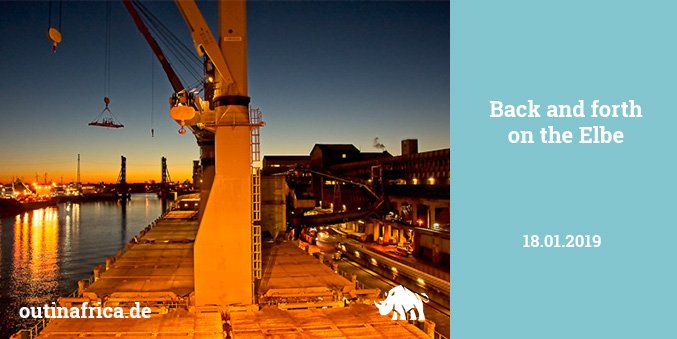
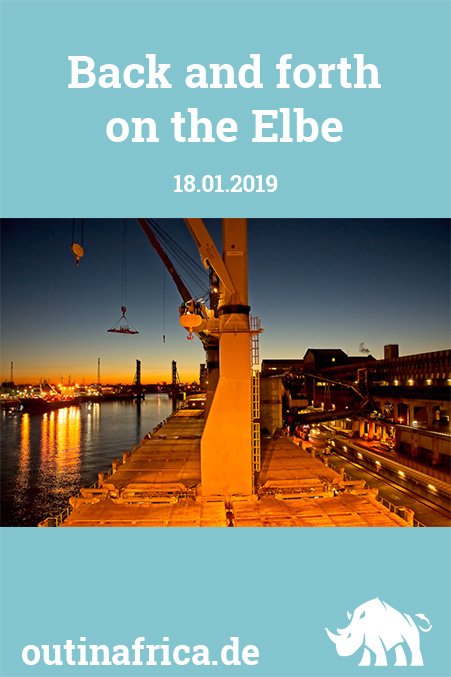

Leave a Reply